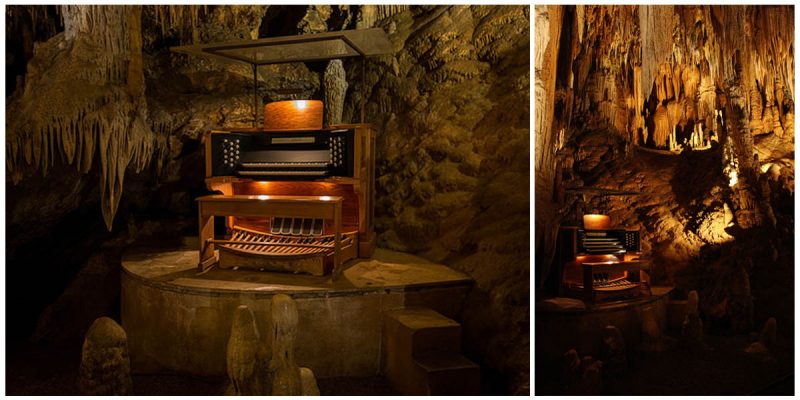Located in Luray Caverns, the largest caverns in the eastern USA, the Great Stalacpipe Organ is an electrically actuated lithophone made from solenoid fired strikers that tap stalactites of various sizes to produce tones similar to those of xylophones, tuning forks, or bells.
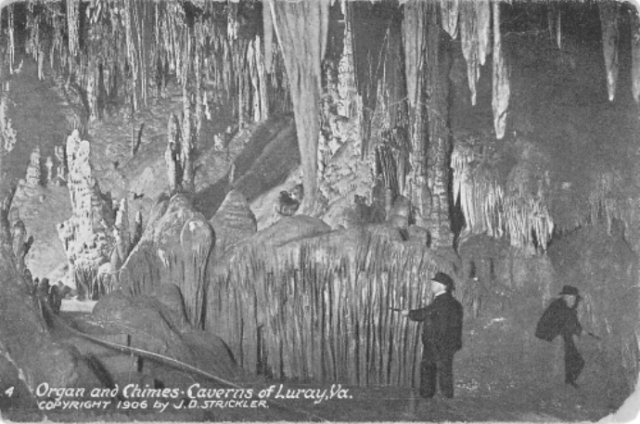
This one-of-a-kind instrument was invented and built in 1954 by Leland W.Sprinkle, a mathematician and electronic scientist at the Pentagon, who also honed the first generation of computers in the ’50s.
It took him over three years to complete it. He began his monumental project by searching the vast chambers of the caverns and selecting stalactites to precisely match a musical scale.
It was immediately turned into a tourist attraction. The organ console was constructed by Klann Organ Supply of Waynesboro, Virginia.
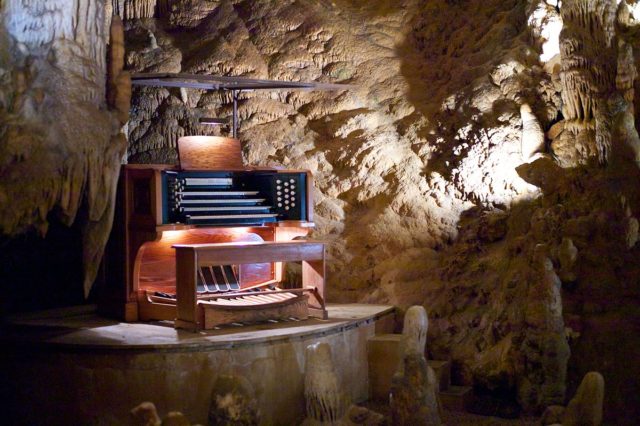
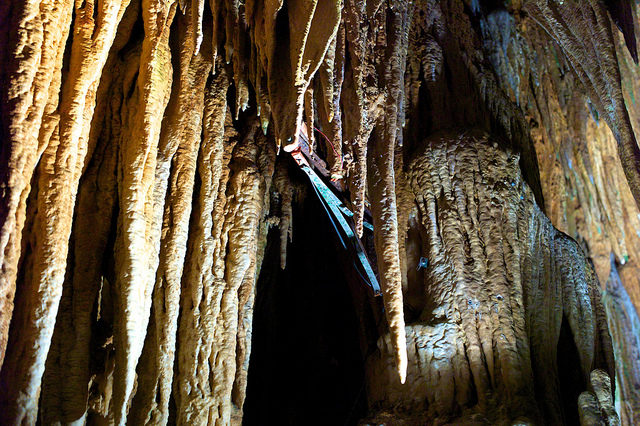
Instead of using pipes, the organ is wired to soft rubber mallets poised to gently strike stalactites of varying lengths and thicknesses. When the keyboard is played, the stalactites produce tones of symphonic quality, and the entire subterranean landscape becomes a musical instrument.
To achieve a precise musical scale, the chosen stalactites of the organ range over 3.5 acres, but due to the enclosed nature of the space, the full sound can be heard anywhere within the cavern.
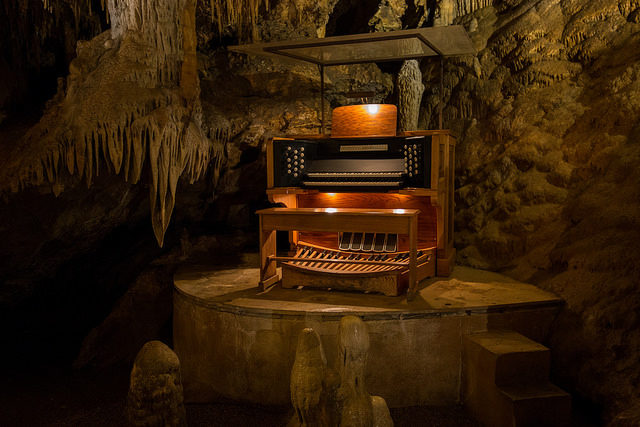
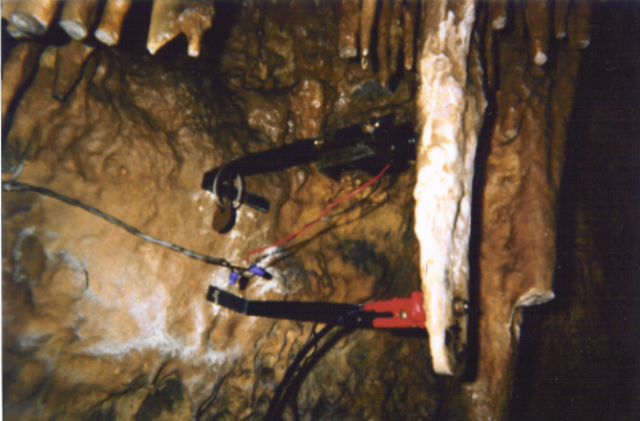
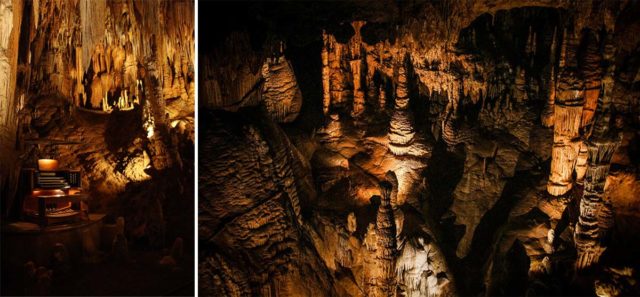
Mr. Sprinkle went through all these stalactites that have stood for thousands of years and slowly tuned them, listening to them until they were perfectly in harmony.
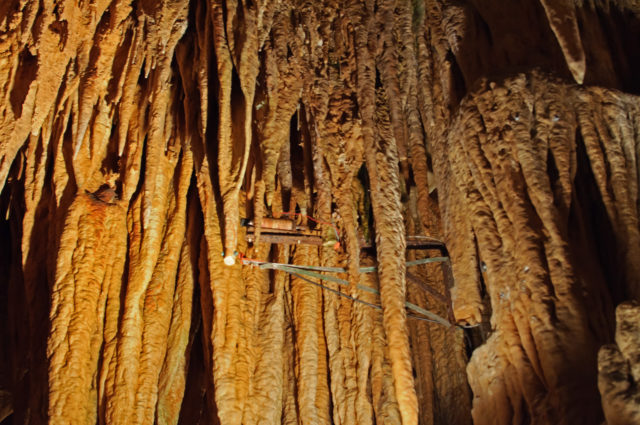
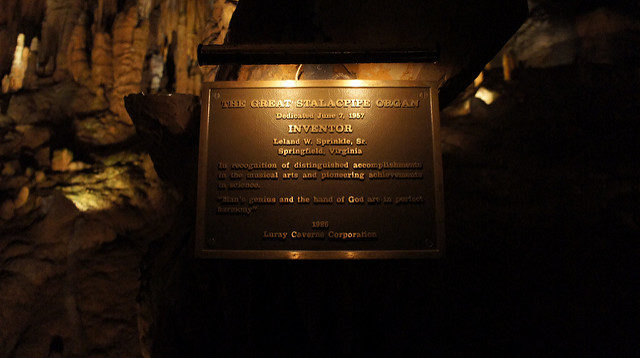
He couldn’t be there in the cave playing the organ for all the tourists, so he built a mechanical sequencer to play the organ automatically.
In 2011, the Finnish/Swedish music collective Pepe Deluxé became the first artists to write and record an original composition on The Great Stalacpipe Organ.
